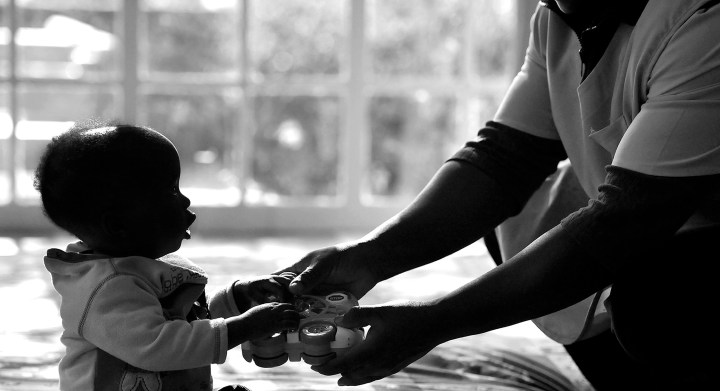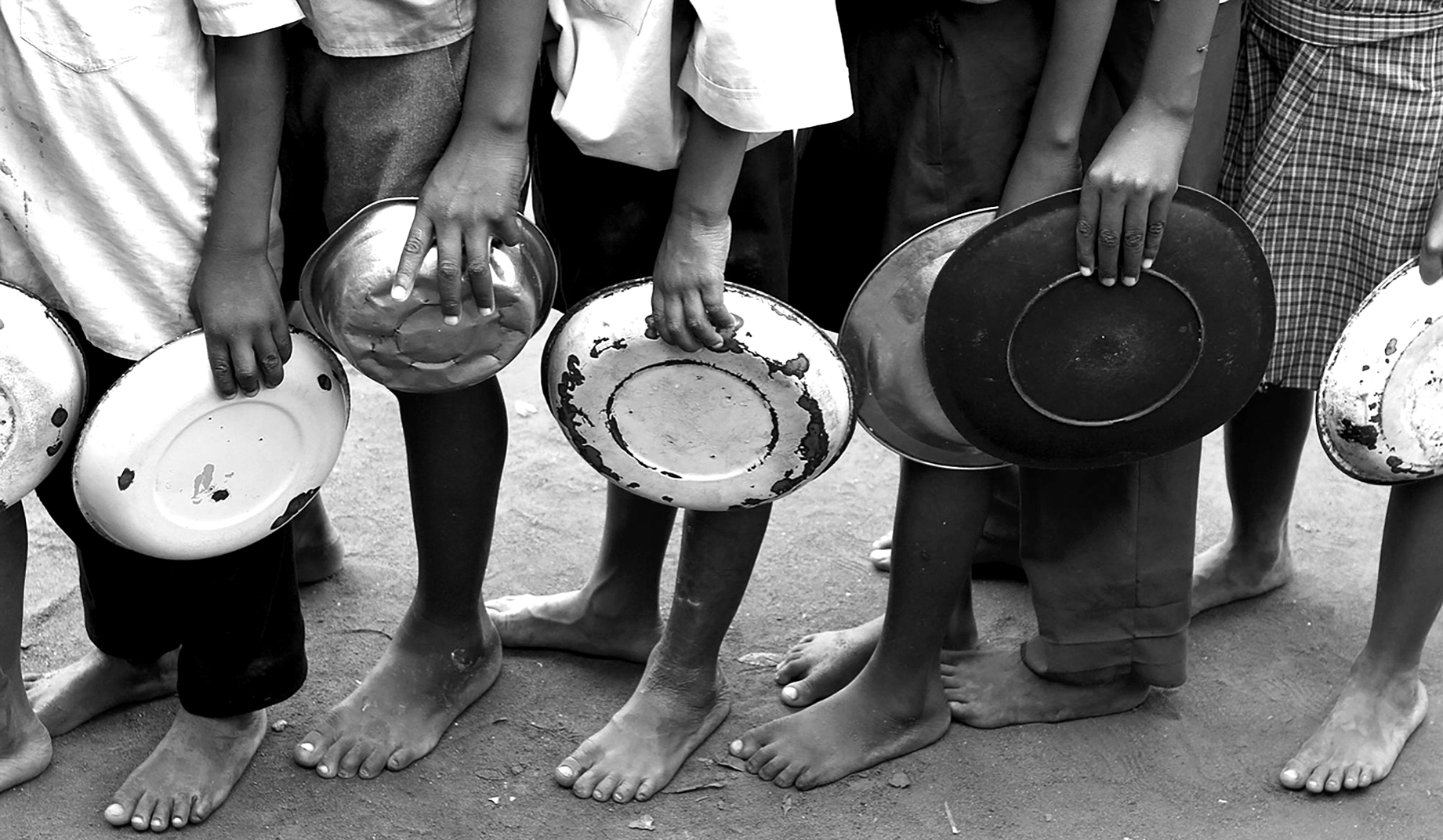ECONOMIC JUSTICE OP-ED
Thoughts about care work in the context of South Africa

In South Africa, the care crisis has been exacerbated by inadequate care infrastructure and chronic underfunding in key sectors like education and health.
The United Nations General Assembly, in a historic move represented by resolution A/RES/77/317, has established the International Day of Care and Support, to be observed annually on 29 October.
The establishment of an International Day for Care represents a significant and commendable milestone in global efforts to adequately value and recognise the salience of care work.
In the South African context, this resolution signifies a positive step towards acknowledging the crucial role of care in our society. However, it falls short of capturing the multifaceted nature of care.
Care is not a monolithic concept; rather, it requires pluralising to encompass its diverse dimensions.
With the adoption of the International Day for Care resolution, we take a stride toward advancing the rights of both caregivers, predominantly women, and care recipients.
It recognises the importance of valuing paid care work, challenging stereotypes, reducing occupational segregation, and creating quality jobs in the care sector.
This day aims to raise awareness about the essential role of care and support in achieving gender equality and sustainable societies, promoting a resilient and inclusive care economy.
Moreover, the timing of this resolution is particularly apt, given the worldwide trend of population ageing. It underscores the increasing demand for care services and support systems while highlighting the importance of investing in the care economy.
This investment entails the creation of robust, adaptable, gender-sensitive, disability-inclusive, and age-aware care and support systems.
Nonetheless, it is crucial to acknowledge that much of the discourse surrounding care and care economies has primarily occurred within the context of the Global North.
The African context
This predominantly centres on a limited range of care forms, primarily related to child care, which may not adequately represent the comprehensive picture of caregiving and care needs in the African context.
A recent publication by the Institute for Economic Justice titled, “Engaging the Care Economy in the Global South: Debates and Contestations”, highlights the need to have an urgent discussion on care and the care economy from a Global South perspective.
The focus on child care is important in our context given the extent of child poverty and inadequate infrastructure.

The focus on child care is important in our context given the extent of child poverty and inadequate infrastructure. (Photo: Gallo Images / Sowetan / Sandile Ndlovu)
Child poverty is a big challenge in South Africa, with the majority of black African children living in poverty in the former homelands.
Although the food poverty rate (proportion of children falling below the food poverty line) is 33%, the poverty rate for black African children is much higher (about 70%).
In the former homelands of South Africa, unemployment is high and care infrastructure is chronically inadequate.
According to data from SA’s general household survey, most children in South Africa do not attend preschool or ECD facilities. These children are also likely to live in a household where none of the adults are employed, households headed by females or in multigenerational households where household resources are already stretched.
While the focus on childcare is important, in our context, we also highlight the importance of elder care, especially given that elder care and child care in Africa intersect in particular ways.
Grandparents, for example, play a critical role in childcare in the absence of parents where they contribute psychologically, emotionally and financially. In these households, where parents are absent due to illness or labour migration, the old age grant is an important resource.
Our discussion paper underscores the critical importance of contextualising the concept of care in South Africa. It highlights the presence of a care deficit, which means there is an insufficiency in providing essential care services such as childcare, food provision and elder care, among others.
The paper urges us to broaden our understanding of care, recognising that it extends beyond conventional notions of caregiving. It delves into how activities like tending the land, collecting water, managing household debt and securing resources such as electricity also constitute forms of care work.
In South Africa, the care crisis has been exacerbated by inadequate care infrastructure and chronic underfunding in key sectors like education and health.
The impact of this crisis became acutely evident during the Covid pandemic, revealing the deficiencies in elder care and childcare infrastructure. Particularly in rural areas, where a significant portion of South Africa’s children reside, the care infrastructure falls woefully short of meeting the needs of women and children.
This care deficit significantly burdens women due to prevailing gender norms, leading to an unequal distribution of unpaid childcare responsibilities within households.
Unpaid care duties
As a result, South African women spend between 2.2 and 3.3 hours more on unpaid care duties, including activities like subsistence farming and agriculture, than men.
At the regional level, the statistics are even more striking, with women in sub-Saharan Africa dedicating 40 billion hours annually to water collection, equivalent to France’s entire year of labour.
This unequal distribution of unpaid care work forces women to make sacrifices, often preventing their active participation in the labour market. This situation exacerbates time poverty for women.
Although past efforts to enhance gender equality have primarily focused on market-based solutions such as private health insurance plans covering caregiving services, and long-term care insurance for extended assistance as well as creating paid employment opportunities for women, these measures have not substantially empowered women or improved their overall wellbeing.
Instead, they have often led to a “double shift” for women, who must juggle both paid employment and unpaid caregiving responsibilities.
Furthermore, the increased integration of women into the economy has not translated into empowerment, as it has been accompanied by rising job insecurity and employment in less visible sectors, such as the care economy.
This further perpetuates wage inequality and income poverty in households, as women’s unpaid care work remains undervalued.
Feminists in the Global North have done a lot of work to push for the valorising of unpaid work and unpaid care work in particular.
Strategies
In our report on the economies of care, we suggest some strategies towards achieving this.
The United Nation Women’s 5Rs framework which includes: recognise, reduce, redistribute, reward and represent, is a good place to start.
According to this framework, recognition includes making visible the unpaid care work. Reduce and redistribute would include the ways in which unpaid care work is redistributed to reduce the burden on women. Rewards and representation would incorporate a decent work agenda by focusing on the quality of jobs. Given the dominance of black African immigrant workers in the care economy, it is also important to make the work of black immigrant women visible
When delving into the care economy in the Global South, however, it is imperative to approach the discussions and strategies regarding the care agenda with careful consideration.
The prevailing rationale for acknowledging, reevaluating and redistributing care tends to be rooted in a model emphasising human capital development and social investment.
We must critically examine the advantages and disadvantages of advancing the care agenda through these frameworks and others like them.
The human capital development model primarily underscores the importance of enhancing skills and education. However, it’s crucial to recognise that many marginalised communities in the Global South face substantial barriers when it comes to accessing quality education and securing decent employment opportunities.
The Covid pandemic has illuminated the shortcomings of current approaches, underscoring the necessity for transformative policies that prioritise care workers, both paid and unpaid, champion overall wellbeing, and advocate for transformative justice.
The value of ideas, intentions and political aims should align with the manner in which policies are put into action.
Therefore, it is essential to scrutinise the ways in which the acknowledgement and reevaluation of care extend beyond mere tactical measures to stimulate economic growth.
In other words, access to care and the dignity of caregiving are intrinsically valuable and should not require justification based on factors like economic growth. DM
Juhi Kasan is a feminist economics and economies of care researcher, and Dr Jamela Hoveni a feminist economics senior researcher, at the Institute for Economic Justice.



















Comments - Please login in order to comment.